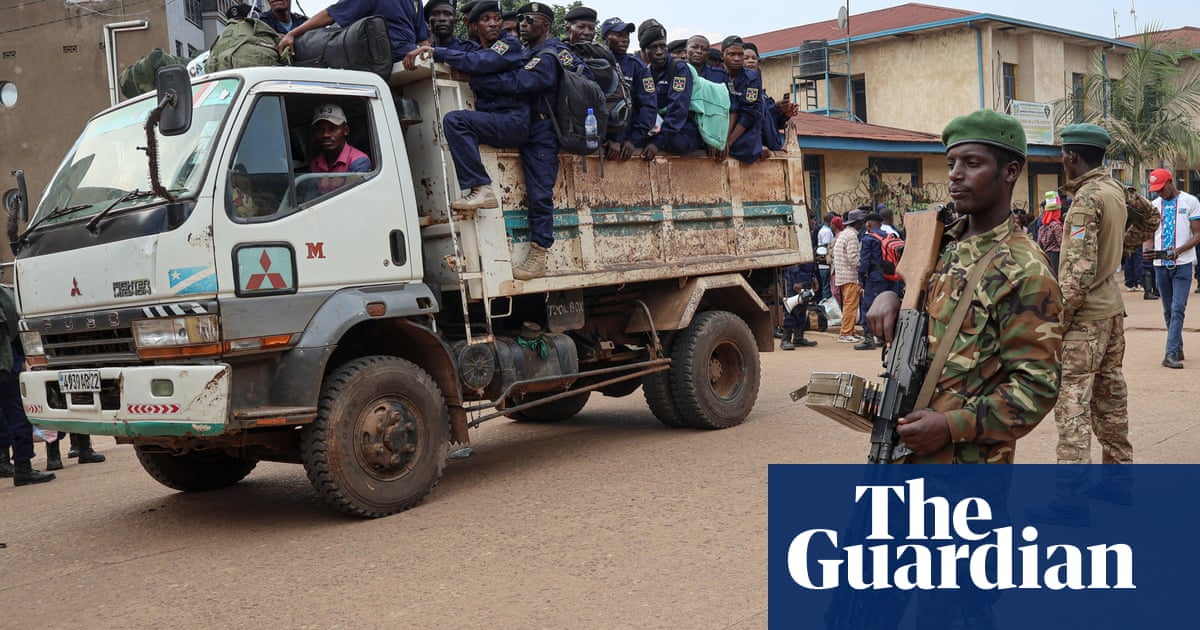Rwanda and theDemocratic Republic of the Congowill sign an agreement in Washington on Friday to end a conflict in the eastern DRC that has killed thousands, although questions remain on what it will mean for the region.
Donald Trump has trumpeted the diplomacy that led to the deal, and has publicly complained that he has yet to receive a Nobel peace prize.
But the agreement has come under scrutiny for its vagueness, including on the economic component, with the Trump administration eager to compete with China and profit from abundant mineral wealth in the eastern DRC, an area that has long been turbulent.
In late 2021 the M23 rebel group launched a new offensivethat escalated sharply early this year, seizing broad swathes of territory including the key eastern DRC city of Goma.
The Kinshasa government has long said – a position supported by Washington – that M23, which consists mostly of ethnic Tutsis, receives military support fromRwanda.
Rwanda has denied directly supporting the rebels but has demanded an end to another armed group, the Democratic Forces for the Liberation of Rwanda (FDLR), which was established by ethnic Hutus linked to the massacres of Tutsis in the 1994 Rwanda genocide.
The Rwandan and DRC foreign ministers will sign the agreement in Washington in the presence of Marco Rubio, the US secretary of state, said a state department spokesperson, Tommy Pigott. The White House also said Trump would meet the foreign ministers in the Oval Office.
In a joint statement, the three countries said the agreement would include “respect for territorial integrity and a prohibition of hostilities” as well as the disarmament of all “non-state armed groups”.
The agreement was mediated through Qatar, a frequent US partner, and Massad Boulos, a Lebanese-American businessman and father-in-law of Trump’s daughter Tiffany who was asked by the president to be a senior adviser onAfrica.
The statement also spoke of a “regional economic integration framework” and of a future summit in Washington bringing together Trump, Rwanda’s president, Paul Kagame, and the DRC president, Felix Tshisekedi.
Denis Mukwege, a gynaecologist who shared the 2018 Nobel peace prize for his work to end the DRC’s epidemic of sexual violence in war, voiced alarm that the agreement was too opaque.
He said the talk of economic cooperation was an unjust reward for Rwanda. The deal “would amount to granting a reward for aggression, legitimising the plundering of Congolese natural resources, and forcing the victim to alienate their national heritage by sacrificing justice in order to ensure a precarious and fragile peace”, he said in a statement.
On the eve of the signing, the news outletAfrica Intelligence reportedthat the deal was asking Rwanda to withdraw its “defensive measures” and for the DRC to end all association with the FDLR.
Sign up toThe Long Wave
Nesrine Malik and Jason Okundaye deliver your weekly dose of Black life and culture from around the world
after newsletter promotion
The Rwandan foreign minister, Olivier Nduhungirehe, denied the report on X. “As a matter of facts, the words ‘Rwanda Defense Force’, ‘Rwandan troops’ or ‘withdrawal’ are nowhere to be seen in the document,” he said.
In April, while on a visit to Washington to start the negotiations, the Congolese foreign minister, Thérèse Kayikwamba Wagner, said Rwanda should be obliged to withdraw from her country, which has been ravaged by decades of war.
Both countries have sought favour with the US. The DRC – which has enormous mineral reserves including lithium and cobalt, which are vital in electric vehicles – has pitched an agreement to seek US investment, loosely inspired by the Trump administration’s minerals deal with Ukraine.
Rwanda has been discussing taking in migrants deported from the US, a priority for Trump.
Rwanda, one of the most stable countries in Africa, had reached a migration deal with Britain’s former Conservative government but the arrangement was scrapped by the Labour government that took office last year.
